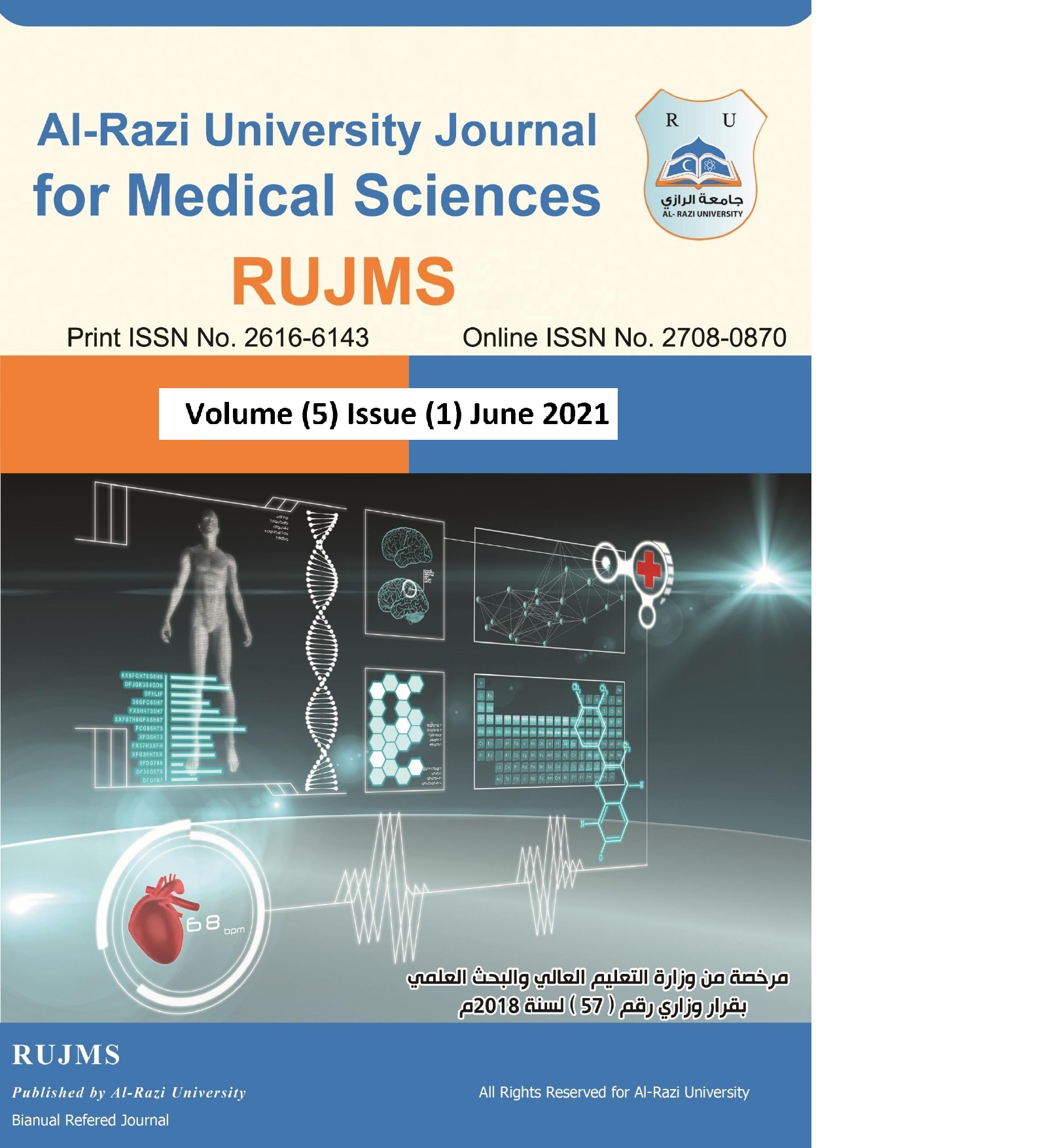Antibacterial Susceptibility and Sider Honey Activity against Isolated Bacteria from Wound Patients attending at Al-Gmohori hospital in Hajja City, Yemen
Abstract
الخلفية: زيادة ظهور العدوى الناجمة عن البكتيريا المقاومة أصبحت تهديداً حقيقياً للمرضى والعاملين في مجال الرعاية الصحية.
الأهداف: تم تصميم هذه الدراسة لتقييم الحساسية للمضادات الحيوية وتأثير عسل السدر على البكتيريا المعزولة من عدوى الجروح لدى المرضى الذين يراجعون مستشفى الغمهورية في مدينة حجة، اليمن.
الطرق: تم جمع 174 عينة من مسحات الجروح من المرضى من يوليو إلى سبتمبر 2021. جمعت العوامل المرتبطة باستخدام استبيان مصمم لهذا الغرض. تم تحديد البكتيريا باستخدام أساليب ميكروبيولوجية قياسية. كما تم تقييم النشاط المضاد للبكتيريا لبعض المضادات الحيوية وعسل السدر باستخدام طريقة انتشار الأقراص.
النتائج: من بين 176 عينة تم فحصها، تم تلوث 124 عينة (70.45%) بالبكتيريا. سُجل معدل أعلى للعدوى البكتيرية بين الفئة العمرية من 16-25 سنة (75%)، وبين الذين يعانون من عدوى في الساق (81.25%)، والفترة الزمنية للجرح لأربعة أسابيع (82.35%)، وبين المرضى النقّل في المستشفى (82.35%)، وبين الذين يعانون من خراج (82.61%)، والذين تعرضوا لإصابات سابقة، وغير استخدام المضادات الحيوية. كانت أكثر أنواع البكتيريا المعزولة من عدوى الجروح هي العنقوديات الذهبية (49.01%)، تليها بسبب Pseudomonas aeruginosa (23.18%)، وEscherichia coli (8.61%)، وStreptococcus pyogenes (4.64%)، وCitrobacter sp.، وBacillus sp. (3.97% لكل منهما)، وKlebsiella pneumonia (3.31%)، وKlebsiella sp. (1.99%)، وStreptococcus pneumonia (1.32%). أظهرت الدراسة أن العنقوديات الذهبية والعنقوديات البيروجينية والكليبسيلا والبنوموكوكي والبكتيريا كانت حساسة لمضاد البيبراسيلين/تازوباكتام ومقاومة للسيفيبيم. كما أظهرت Pseudomonas aeruginosa مقاومة عالية لجميع المضادات الحيوية المستخدمة، بينما كانت Escherichia coli حساسة تماماً للسيفيبيم ومقاومة لمضاد البيبراسيلين/تازوباكتام. أظهر عسل السدر نشاطاً مضاداً عالياً ضد Pseudomonas aeruginosa وStreptococcus pyogenes وKlebsiella pneumonia ونشاطاً متوسطاً ضد عزلات Staphylococcus aureus وEscherichia coli وBacillus sp.
الاستنتاج: تعتبر النتائج المحصلة مؤشراً على مشكلة خطيرة لنظام الصحة في السنوات القادمة قد تنتج عنها البكتيريا المقاومة للمضادات الحيوية. لذا، يُوصى بإجراء المزيد من التجارب التجريبية لتقييم فعالية العسل على مقاومة البكتيريا.
3.5
